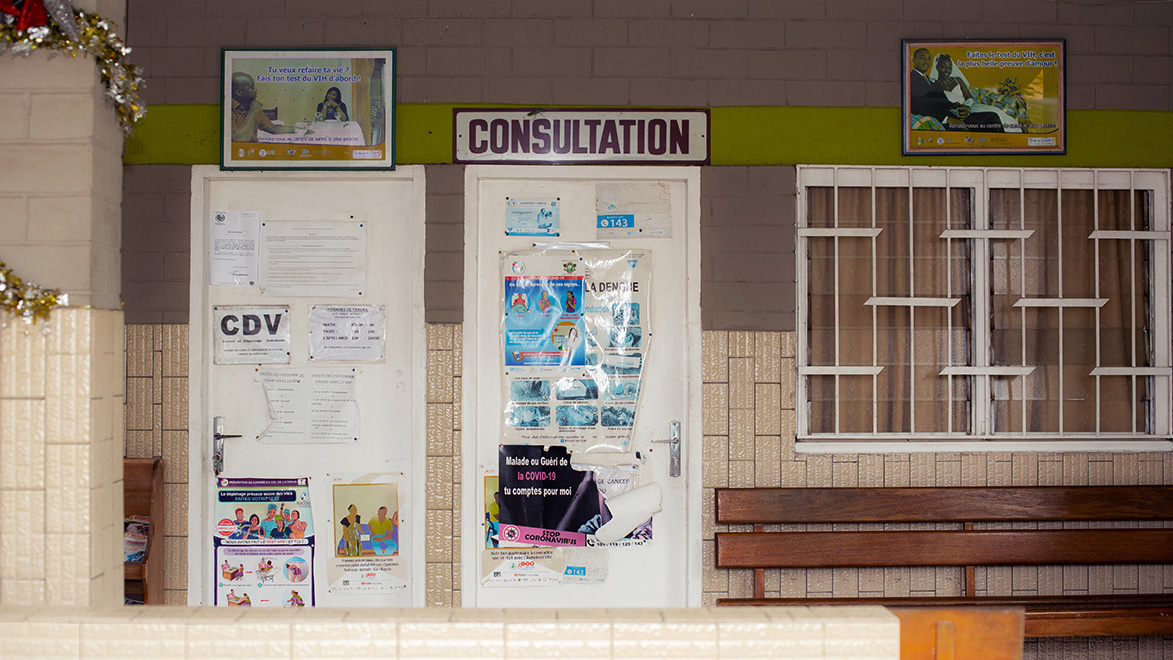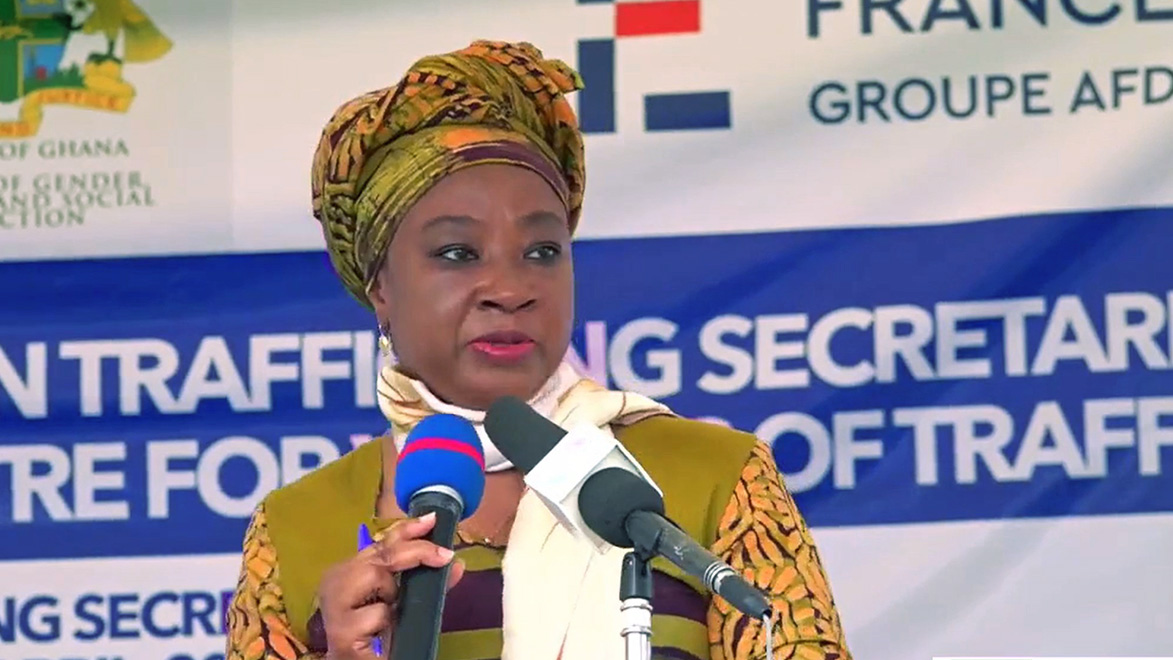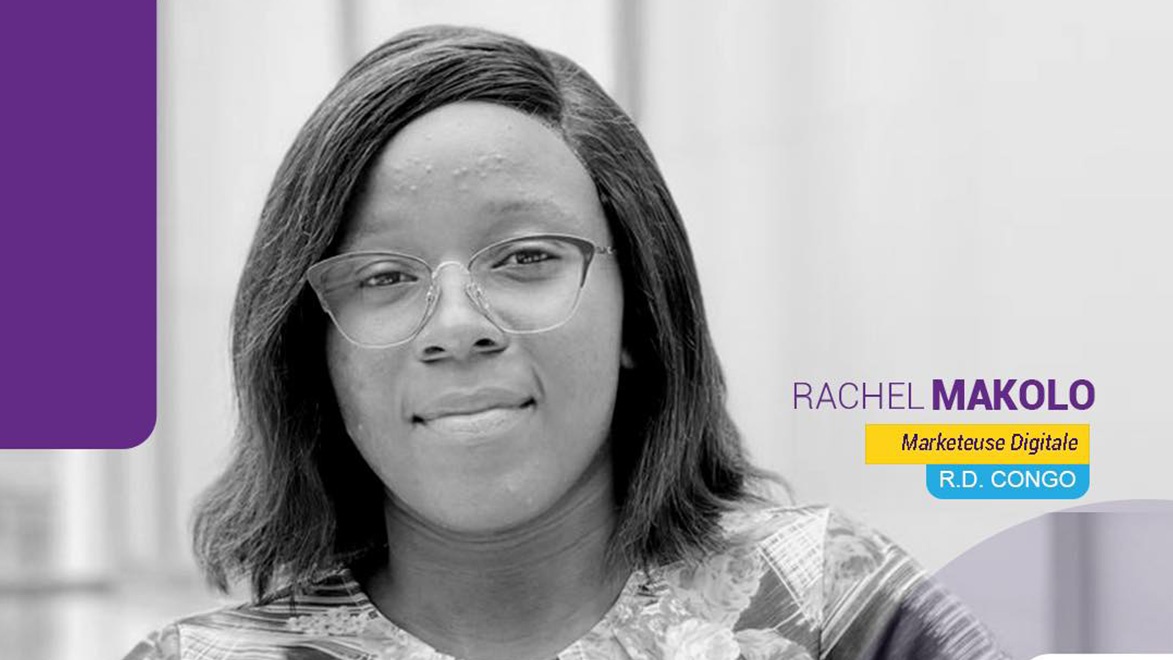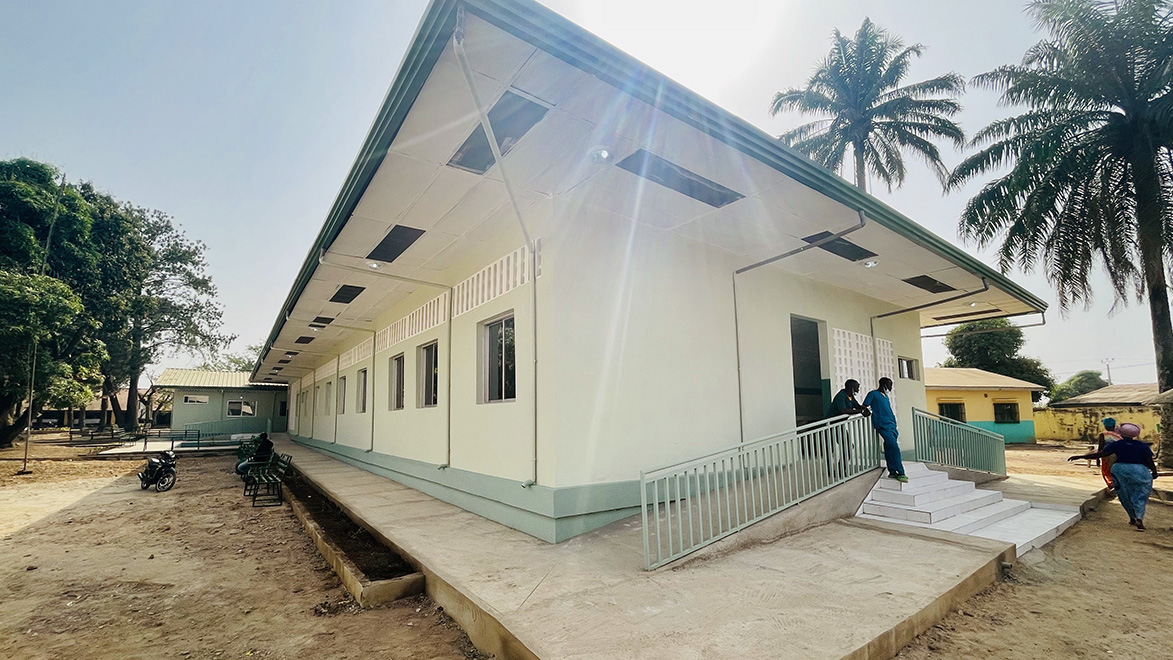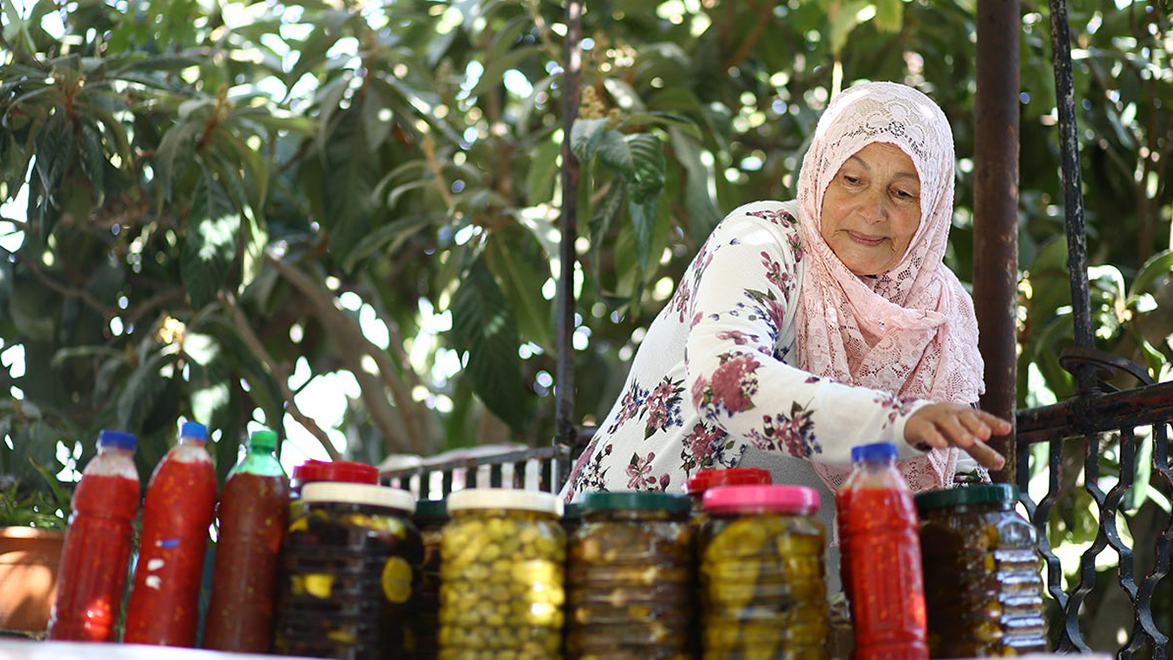SDG 8
Supporting Vocational Education in Rwanda
INTERVIEW Education is a key stepping stone for employment and growth. In Rwanda, the AFTER project has helped improve the quality of technical and vocational training since 2020.
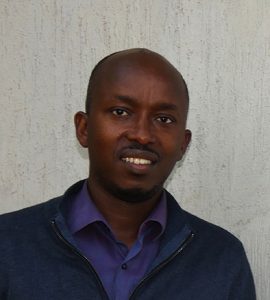
With KIBA MUVUNYI,
vocational education and capacity-building expert for AFTER
What is Rwanda’s strategy for vocational training?
Education is at the core of Rwanda’s 2017-2024 national strategy for youth employment. The government aims to increase the proportion of young people in vocational training from 31.1% in 2017 to 60% in 2024, with a goal of creating 214,000 jobs a year. For the moment, the proportion is 31.6%.
However, many challenges must be met. It’s expensive to create and manage training centers, and most programs are outdated and don’t fulfill the market’s needs. The existing centers lack resources, such as books for teachers and students alike, facilities, pedagogical material, supplies, and equipment.
Meanwhile, educators face a dual challenge: developing their computer skills and experience in the industrial sector. Moreover, most vocational school directors need to enhance their management skills.
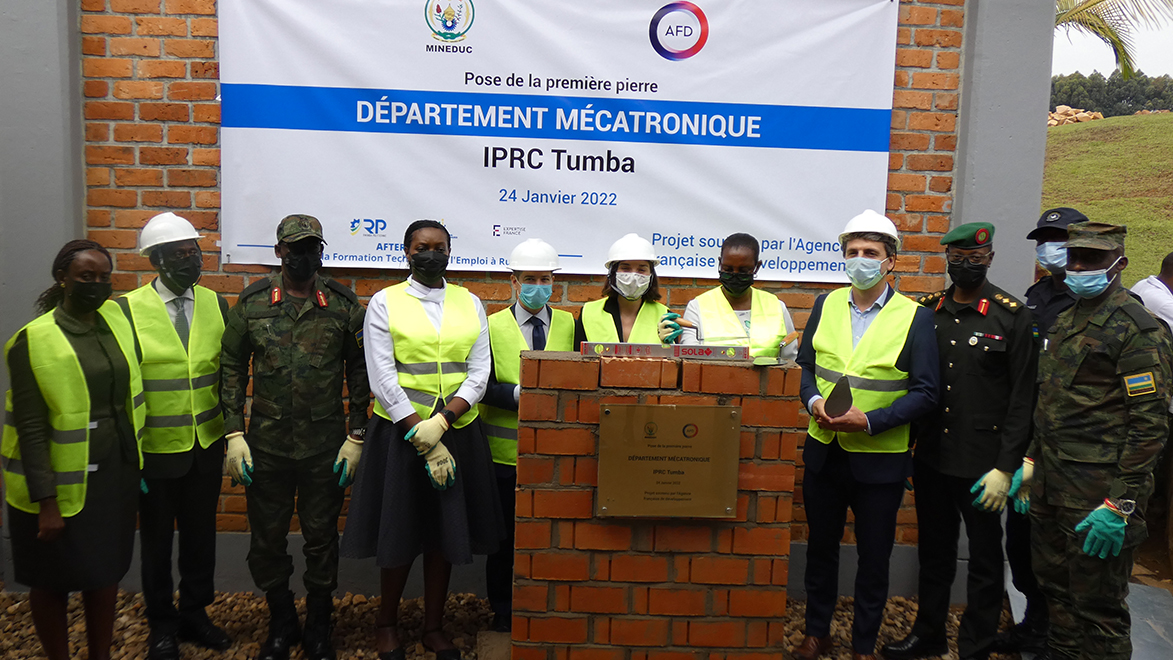
The Mechatronics Department of Tumba’s Integrated Regional Polytechnical Center was inaugurated as part of the AFTER project.
How does the AFTER project effectively contribute to tackling these challenges?
When we initiated the project, we analyzed the situation with our partners. Issues were identified for each of them and actions were planned on that basis. This approach helped us find relevant solutions for the field.
Since then, the construction of new buildings has been launched. Others will be renovated to provide a better educational environment. Equipment will also be provided to schools to improve hands-on training.
Other initiatives also aim to strengthen the skills of students and staff. The language laboratory currently under construction for Tumba’s Integrated Regional Polytechnical Center (IPRC Tumba) will enable students to improve their language skills in French and English. Teachers, training center directors, and administrative personnel have attended various training sessions according to their needs, be it in quality management, pedagogy, or strengthening their practical skills. Other sessions and workshops will be implemented to promote gender equality, environmental protection, and security.
This project also aims to help graduates join the labor market.
That’s quite so and why we’ve strengthened ties between training centers and industry. For example, we’ve organized study visits, placed trainers within industries to oversee student apprenticeships, organized sessions led by industry experts for students, strengthened career counseling at training centers, and provided follow-up for young people after completion of their curriculum. Efforts have also been made to improve the visibility and attractiveness of training centers.
Additionally, clubs have been created to encourage youth entrepreneurship. A support mechanism for innovating young project initiators has also been set up.
It’s necessary to develop students’ skills beyond the task.
How do you think the transition between training and the professional world can be improved?
First and foremost, the education environment must be improved to allow young people to undergo hands-on training. Implementing a life-long education system for teachers is a major area of development in this regard.
As for the relevance of training in the professional world, it’s necessary to develop students’ skills beyond the task. It’s also important to enhance the interconnection between companies and vocational centers by increasing, for instance, the number of on-site training hours or by supporting young graduates through alumni networks and youth centers.
Interview conducted in May 2022
Achieving SDG 8
The Decent Work and Economic Growth sustainable development goal aims to reduce the proportion of youths who are unemployed and who lack training. As a response, Expertise France is supporting the design and implementation of full-time and life-long education tailored to the needs of partner countries. The agency also assists them in developing training centers.
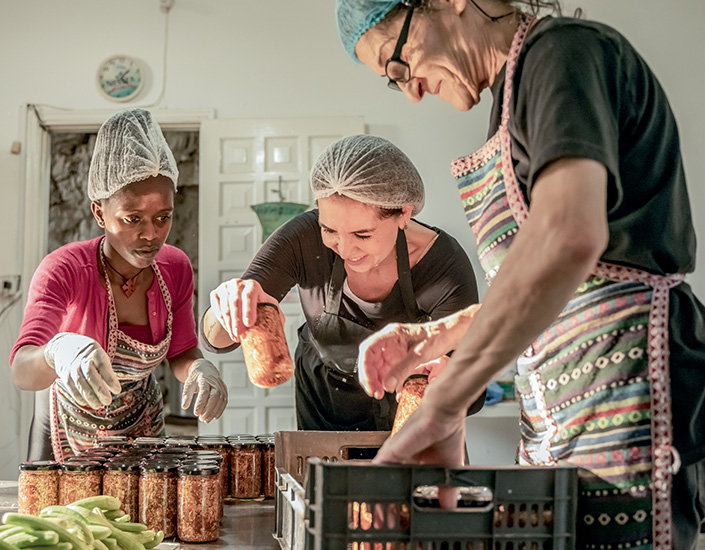
Further reading








